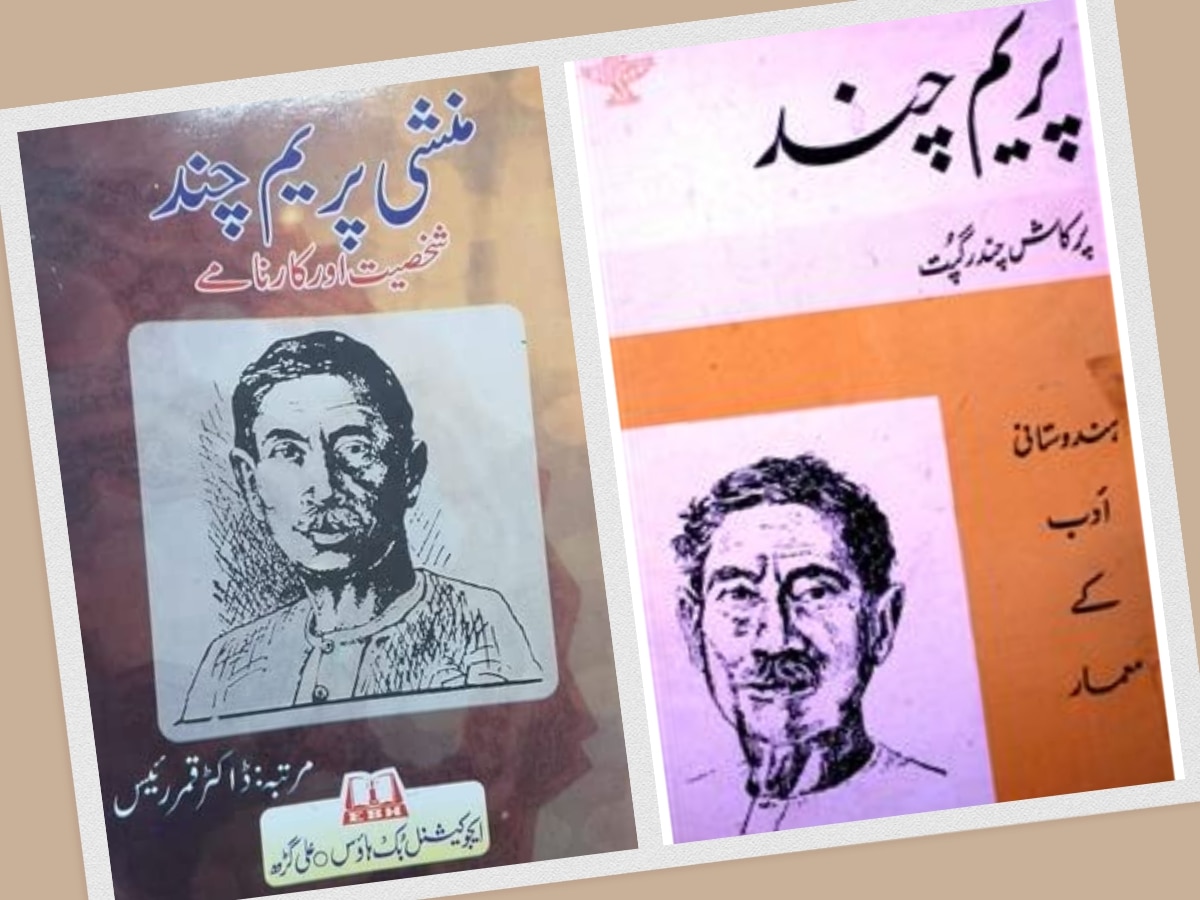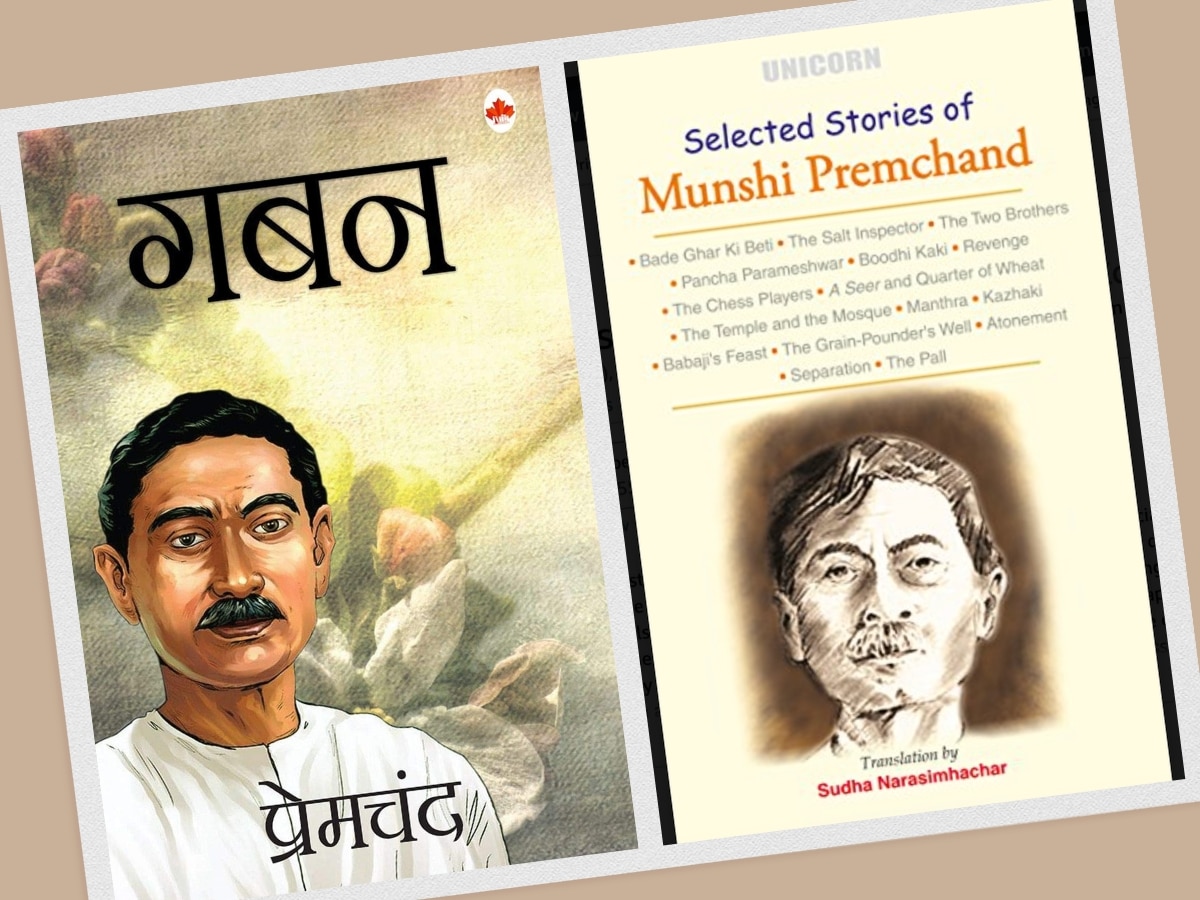Remembering Premchand: From The Heartland To Modern Minds — How His Stories Still Resonate
Premchand's 143rd birth anniversary: Premchand's literary masterpieces continue to resonate with readers, capturing the essence of life and the unwavering human spirit in the face of adversity.

New Delhi: Dhanpat Rai, known by his pen name Premchand, is celebrated as a towering figure in Urdu and Hindi literature, who left an indelible mark on readers' minds with his insights into the struggles of common people, particularly those in rural areas. Through his novels and short stories, Premchand fearlessly explored human relationships, poverty, caste discrimination, and social injustices, offering piercing commentary on the human condition. Notably, he also addressed women's issues, providing them with a much-needed voice in his literary works.
With an impressive repertoire of 12 novels and nearly 150 short stories, Premchand's literary masterpieces continue to resonate with readers, capturing the essence of life and the unwavering human spirit in the face of adversity. On the occasion of his 143rd birth anniversary, we reflect on his literary legacy, which remains as relevant today as it was during his time.
A Life Shaped By Struggles: Early Years
Premchand's formative years were marked by financial hardships that profoundly influenced his writing. Having personally experienced poverty, he felt compelled to depict the struggles of ordinary people in his stories. As a young boy, Dhanpat Rai's interest in literature was sparked when he listened to the epic narrative 'Tilism-e-Hoshruba'. Despite facing numerous challenges, he found solace in books by assisting a bookseller, which allowed him to read all available Urdu literature. Later, poverty forced him to sell his book collection and even his coat for survival. In 1899, he secured a job as an assistant teacher, alleviating some financial strain and enabling him to pursue his passion for writing.
His debut novel, 'Asrar-e-Ma'abid', was published in 1902, boldly discussing the conduct of pujaris and their illicit relations with women. From there on and throughout his literary career, he explored hitherto unexplored themes, such as 'Hum Khurma-o-Hum Sawab' (1907), depicting the struggles of a young widow, and 'Maidan-e-Amal' (1932), illustrating the exploitation and struggle for resources between two classes of the same village.
Challenging Social Norms: Bold Themes In Premchand's Novels
Premchand fearlessly challenged societal norms in his novels, advocating for social justice and shining a spotlight on issues of caste, gender, and poverty. In his novel 'Bewa' (1927), Premchand portrayed the challenges faced by a young widow named Purna after her husband's accidental death. With no support, she faced exploitation due to her youth and beauty. However, she managed to escape such a situation and sought refuge in a vidhwa ashram or a shelter for widows. Through this narrative, Premchand criticised Hindu customs that forbade widows from remarrying, questioning the notion of a civilised society that claimed to care for women's safety while denying them the right to a second marriage.
Premchand's novel 'Nirmala' (1925) highlighted the exploitative dowry system. The story revolves around Nirmala, who is compelled to marry an older man after her father's passing, as her relatives cannot afford a hefty dowry. The burden of an unaffordable dowry makes her life unbearable, and she suffers in silence with no recourse for help or justice. Dowry continues to be a social evil, even in the 21st century.
Through 'Chaugan-e-Hasti' (1924) and 'Godan' (1936), Premchand depicted the struggles of the poor and farmers, confronting the indifference of the upper or ruling class. In 'Chaugan-e-Hasti', he also highlighted individuals who rejected the notion of being "Aaqa" (masters) over the poor and instead chose to offer assistance. The iconic 'Godan' takes readers on a journey with Hori, a farmer whose sole dream is to own a cow. The novel revolves around Hori's ambition and the unfortunate tragedies that prevent him from fulfilling his dream. The narrative also touches upon the uprising of the oppressed against injustice, with Hori's son and wife displaying courage as they stand up against zamindars and sahukars, even though their efforts remain unsuccessful.

Power Of Empathy: How Premchand's Short Stories Touch Hearts
In today’s time, we have noticed a decline in reading time and attention spans, a similar phenomenon witnessed in Premchand's era as well. People were moving away from long-form storytelling, such as dastangoi and novels, gravitating toward realism, which short stories provided. Premchand's short stories resonated deeply with readers of that time, owing to his profound ability to connect with their emotions.
Through 'Kafan' (1936), which he wrote in a single night, Premchand portrayed the heart-wrenching plight of poverty-stricken families unable to afford a shroud for their deceased loved ones, laying bare the harsh reality of destitution. In 'Poos ki Raat' (1930), he masterfully depicted the vicious cycle of rural poverty through Halku, a farmer. Halku saved money all summer for a blanket, only to have it taken away by a sahukar for a past loan. Premchand took readers on an emotional journey, invested in Halku's struggle to acquire the blanket. These stories exposed how basic needs for the poor remained unattainable, perpetuating their suffering. Another poignant short story, 'Boodhi Kaki' (1921), sheds light on the loneliness and neglect experienced by elderly widows in society, a subject that remains untouched or less talked about even today. 'Thakur ka Kuaan' (1924) fearlessly confronted caste-based discrimination in society. The story revolves around Jokhu and Gangi, a lower-caste couple denied access to clean water from the well used by the upper class. The narrative highlights the theme of social injustice and the struggle of marginalized communities for basic rights and dignity.

Relevance Of Premchand's Themes In Modern India
Premchand's themes from pre-Independence India retain their relevance. His narratives on social inequality, rural struggles, and human emotions continue to resonate, offering invaluable lessons from the past. Contemporary society grapples with similar challenges, such as the plight of farmers. While zamindars may have been replaced by other entities, the core problems that Premchand addressed persist to this day, evident in alarming suicide rates among farmers.
Premchand's portrayal of women's issues, such as widowhood, remains a taboo sort of subject in modern India. Women's safety remains a pressing concern, and instances of dowry-related pain and torture continue to make headlines.
Premchand's characters, like Nirmala, Poorna, Dhaniya, Balraj, Manohar, Qadir, and Hori, mirror people encountered in our surroundings. Their struggles still reflect those of contemporary individuals, underscoring the ongoing relevance of Premchand's writings.
In essence, his works serve as a powerful reminder of the persisting challenges and inequalities. As we commemorate his birth anniversary, we are reminded of the profound impact that literature can have in shaping hearts and minds, and Premchand's timeless narratives continue to question generations.
The author is a PhD in Urdu from Aligarh Muslim University.
[Disclaimer: The opinions, beliefs, and views expressed by the various authors and forum participants on this website are personal and do not reflect the opinions, beliefs, and views of ABP News Network Pvt Ltd.]
Related Video
Sambhal News : Electricity Department Investigates SP MP Ziaur Rahman Barq’s Residence Over Suspicious Meter Reading
































